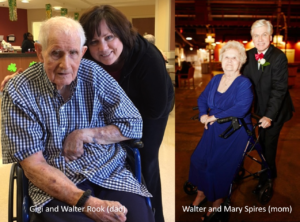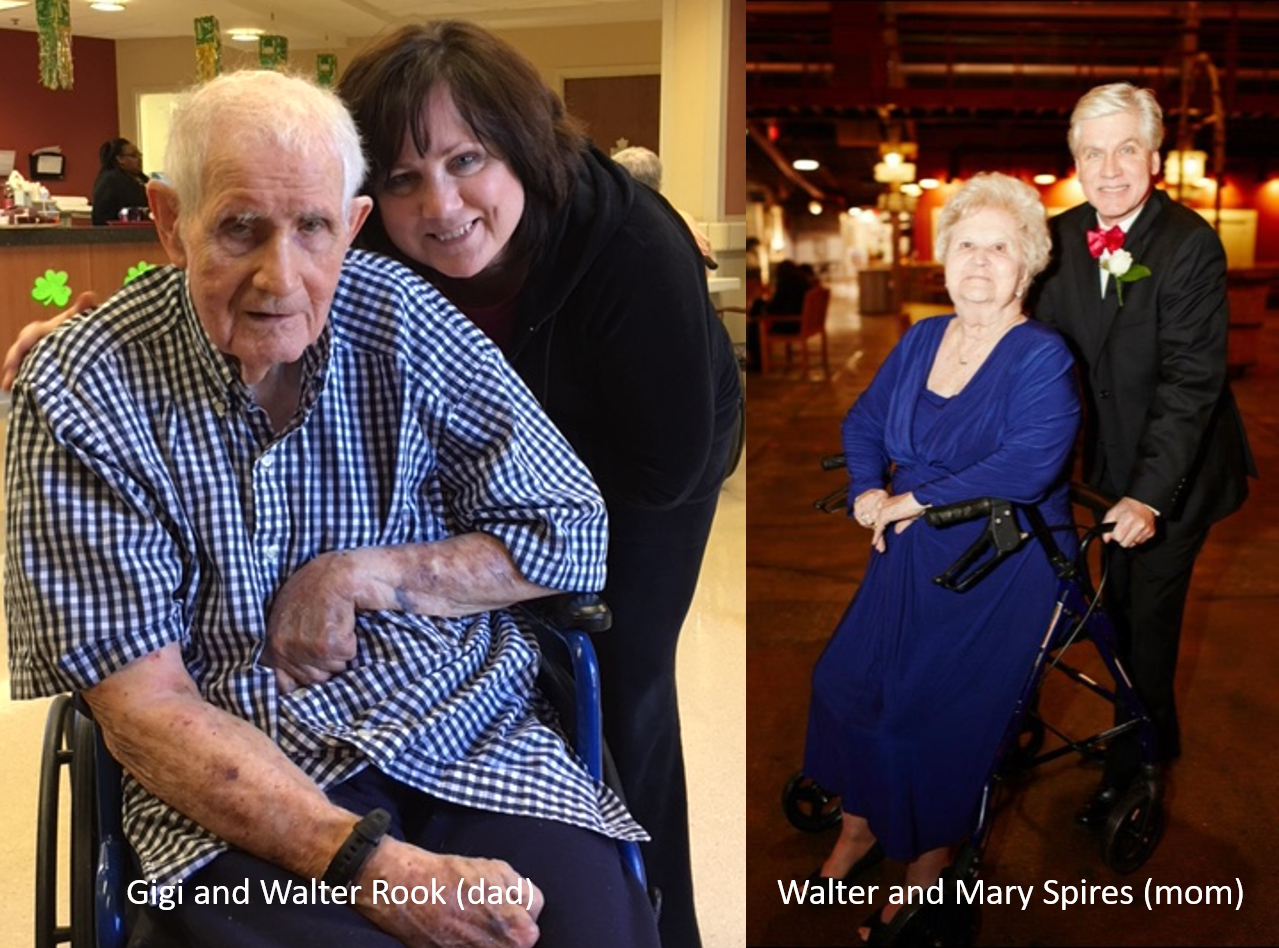
Caregiver has taken on new meaning for many of us from the “baby-boomer” generation as our parents age, and we find ourselves in role reversals of sorts. We are now called upon to provide care for those who spent much of their lives caring for us as we have for our children.
In our home, we went down this path with my dad and my wife’s mom a number of years ago. For the last few years, we are back in that hard place with my mom and her dad—both hundreds of miles away in opposite directions. We are thankful for care from family who live closer and staff where they reside. Above all, we are thankful they are still with us—knowing sooner than later, we will get THAT call. Until then, like so many of our friends and peers, we are doing our best to honor our parents and, collectively, be good stewards of their care.
A few weeks ago during my time with the Lord, the Holy Spirit brought this subject, care, to mind in the broader context of caregiving and the Christian life—God, our Chief Caregiver, and care that flows from our thankful hearts into the lives of needy people.
Care is not mentioned among the fruit of the Spirit, nor is it found among the attributes of God. But we know from the beginning of the Bible to the end, God takes great care of His people because He cares deeply. The care of God flows from the love of God as do many other benefits toward man. We could say, without error, care is love poured out.
Care is one of those great words that serves as both a noun and a verb. The Apostle Peter did a wonderful job using both in one sentence (just like your English teacher used to ask.)
“Casting all your care (n) on Him because He cares (v) for you.” (1 Peter 5:7 NKJV)
There are many ways to demonstrate care. I chose three based on what we learn from God’s Word (how He dealt with His people in the OT and how Jesus did in the NT), our personal familial situations dealing with aged parents who sometimes act like children, and years of work among homeless, addicts, and prisoners.
♦ Protection ♦ Provision ♦ Patience
God, the Father, Son, and Holy Spirit – Principal Caregivers There are so many verses that reassure us as sons of most high God that we are His, and He promises to be our strong defender and shield. Here is one.
“The LORD is my protector; He is my strong fortress. My God is my protection, and with Him I am safe. He protects me like a shield; He defends me and keeps me safe.” (Psalm 18: 2 GNT)
We know God has always provided for His children in many ways. Consider the fur in the Garden that clothed Adam and Eve, the ram in the thicket for Abraham, manna in the desert, and all the times He made provision for His wayward people. Then consider His final provision—Jesus Christ the Lamb sacrificed for the sins of the world.
“But God proves His own love for us in that while we were still sinners, Christ died for us!” (Romans 5: 8 HCSB)
Many OT verses speak to and demonstrate God’s patience with His disobedient, obstinate people. After Jesus patiently endured shame and suffering to death (that had our names on it), He kept His promise to send the Holy Spirit. The Spirit not only gives us power to live and comfort in hard times, He patiently works in our lives to produce fruit—one of which is patience.
“But the fruit of the Spirit is…patience” (Galatians 5: 22 excerpted)
All of that makes sense from the point of view of the Holy Trinity, but how do they (protection, provision, patience) find expression in and through us?
Christians as caregivers. God has great expectations of His children. We are His sons—adopted into His family through the finished work of Christ on the Cross. While His atoning work is finished, He continues to work on and in us by the Holy Spirit until He takes us Home. His expectations are that we learn from Him (Matthew 11: 29) and do what He did:
Love one another. Do unto others. Go tell others about Him.
Here are three ways His care and caring are poured out through our lives.
- Protection. This response is two-part, and the first will shock some. (1) As biblical Christian men, our first responsibility is we must protect God. Before I lose you with that strange response, let me clarify. We must protect His reputation.
If you are in Christ, you no longer have a reputation of your own to maintain. You gave up your right to yourself and laid it, along with the rest of your life, on the cross to be crucified. The Apostle Paul said it best,
“I have been crucified with Christ. It is no longer I who live, but Christ who lives in me.” (Galatians 2: 20a)
As Christian men, we protect God (His reputation) by first laying our lives down, then living before the world in humility—intent on loving and living as He did. When we worry about our own reputations (pride), we may be certain we will at some point fail and bruise His reputation as the world watches and scoffs.
The other side of protection as a caregiver for Christ is this. We look out for the interests of others—those who are unable to protect themselves. Our world is full of needy, helpless people, some more than others. We have the poor and disenfranchised, orphans, widows (single moms), the addict and the prisoner, and perhaps the least cared for in our nation, the unborn child whose cries have been muted over four decades.
2. Provision. As caregivers, we must make provision for the physical and emotional needs of people. But the most important provision does not cost a dime or take up any space.
We must be providers of truth of the Gospel of Christ to the lost.
“Jesus said to them, “I am the bread of life; he who comes to Me will not hunger, and he who believes in Me will never thirst.” (John 6: 35 NASB)
Many Christian organizations attend to both as they provide care. Consider first how well God has cared for and attended to your provision (and your family). Then ask yourself how you are caring for others according to the example and instruction of Jesus.
3. Patience. Just as God has been and remains patient (long-suffering) with us, so we must do a better job of demonstrating patience. Consider three means of proving patient care:
♦ Patient with unbelievers—praying and believing the Holy Spirit is working on them just as He did with you and me. Most, if not all, of us did not pounce on the Gospel the first time we heard it. Some wait and watch. And remember, they are watching you and me!
♦ Patience with believers who are not as far along in the process of sanctification or who have taken more steps back than forward. I believe it is safe to say, we have all been there at some point in our walks with the Lord. Three steps forward—two back. Two steps forward—three back. Pray for, encourage, and walk with those brothers who will let you do so. And we can pray for those who will not. Prayer = Care.
♦ Finally, be patient with yourself. God is! He knows we are works in progress. We are made in His image. Yes, it was tarnished, dented, even broken in places because of sin. But Jesus removed that, and the Holy Spirit is patiently reforming us from the inside out. We can either go at His pace or run ahead. We know what that brings!
I am so thankful to be counted among you dear brothers, knowing our Father is our Protector, Jesus our complete Provision, and the Holy Spirit patiently working on, in, and, hopefully, through us for His glory.


